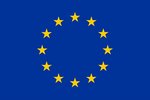Novel and attractive minimally processed organic strawberries and apples
The MILDSUSFRUIT goal is to increase quality and sustainability of organic fruit processing through the optimization of specific mild technologies and by the valorisation of vegetable organic by-products. Below you can find the activities carried out to date.




Within the MILDSUSFRUIT project, fortified organic strawberries have been developed by the application of vacuum impregnation technology. Organic Yacon juice, rich in fructooligosaccharides, in particular inulin, was used for the impregnation of whole strawberries (Fig.1), showing a potential prebiotic effect of these kind of products. Moreover, the strawberries enriched with Yacon juice were more appreciated from the sensorial point of view, and their quality parameters were well maintained during the shelf-life (11 days at 4°C).
Minimally processed strawberries and apples were also obtained by the application of osmotic dehydration. In particular, different polyols were used as osmotic agents (sorbitol, mannitol at different concentration) to investigate the mass transfer, bioactive compounds and sugar content. Concerning the latter, the osmotic dehydration in polyol solutions caused the removal of sugars from the inside of the samples: sucrose, glucose and fructose. The samples dehydrated in 30 percent mannitol and 40 percent sorbitol were characterized by four times lower concentration of the mentioned sugars. Dehydration caused the introduction into the cells and adsorption of polyol molecules on the surface and inside tissue, as it can be observed in Fig.2 in the case of strawberries.
The selection of the by-products, the extraction methods and the ingredients to be used for the enrichment of organic food products was realized based on the scientific literature, while the characterization of apply by-products from different cultivars and sea buckthorn were performed experimentally. The results indicated that the greater values for total phenolic content, antioxidant activity and anthocyanin content were found in the peel of the fruits, rather than pulp or the whole fruit (Fig.3). Sea buckthorn pomace was also rich in total phenolics, ascorbic acid, showing antioxidant activity; the highest values for these parameters being obtained for Mara variety. These results suggest that fruit by-products have enough amounts of bioactive compounds and could be further used as rich ingredients in food industry in order to improve nutritional value of some staple food such as bread. Moreover, the phycocyanin extraction from spirulina and its stabilization was investigated as a potential ingredient in the enrichment of organic fruit products (Fig.4).
Read more about the MILDSUSFRUIT project: https://www.mildsusfruit.com/
Social media
Authors
Pietro Rocculi – University of Bologna (pietro.rocculi3@unibo.it) https://www.unibo.it/sitoweb/pietro.rocculi3
Urszula Tylewicz– University of Bologna (urszula.tylewicz@unibo.it)
https://www.unibo.it/sitoweb/urszula.tylewicz
Juan Manuel Castagnini - University of Bologna (juan.castagnini@unibo.it)
https://www.unibo.it/sitoweb/juan.castagnini
Francesca Patrignani – University of Bologna (Francesca.patrignani@unibo.it)
https://www.unibo.it/sitoweb/francesca.patrignani
Malgorzata Nowacka – Warsaw University of Life Sciences (malgorzata_nowacka@sggw.edu.pl)
Mona Elena Popa – USAMV Bucharest (monapopa@agral.usamv.ro)
https://www.researchgate.net/profile/Mona-Popa
Editor: Karin Ullven / Design: Christine Dilling
